Brexit: What happens now?
BBC News | 24 June 2016
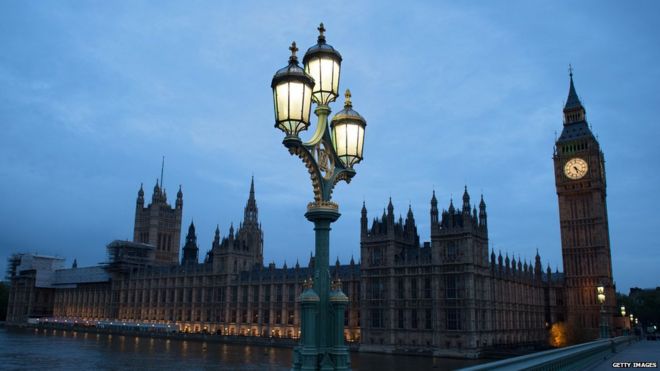
The UK has voted to leave the EU - a process that has come to be known as Brexit. Here is what is likely to happen next.
Dawn breaks
At exactly 06:00 BST it was confirmed that the UK had voted to leave the European Union. The first thing to stress is that the UK will not leave immediately. The UK will still be a member of the European Union at this stage. The process of leaving will begin, however.
David Cameron's statement
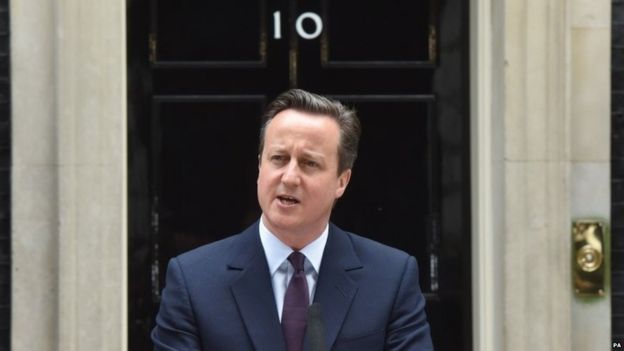 PA
PA
David Cameron will almost certainly make a statement - more likely than not in Downing Street.
This will be followed by a statement to Parliament on Monday or earlier if MPs demand a special sitting on Friday or Saturday.
During the campaign, Mr Cameron insisted that he would not quit as prime minister in the event of a leave vote. However, it remains widely expected that as the British people have rejected his advice to stay in the EU, this would be the time to announce his departure.
The markets react
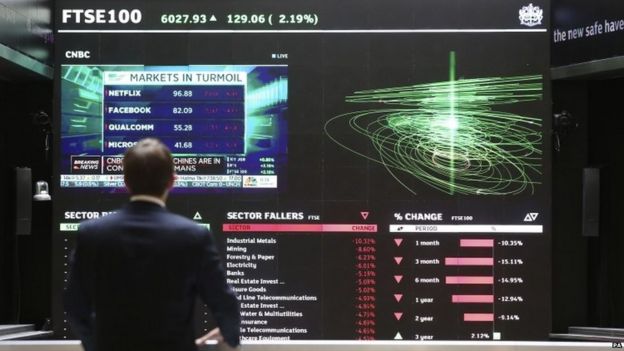 PA
PA
All eyes will be on the City of London when trading starts at 08:00 BST.
The value of the pound tumbled after the announcement of the first results in the referendum - falling to its lowest levels against the dollar since 1985.
Some in the Leave camp acknowledged there would be a short-term "blip" in the markets but insist things will quickly return to normal.
Bank governor Mark Carney is likely to emerge as a key figure in the following hours and days and the European Central Bank is also likely to react swiftly given the scale of the changes to the EU that will follow a UK vote to leave.
European leaders respond
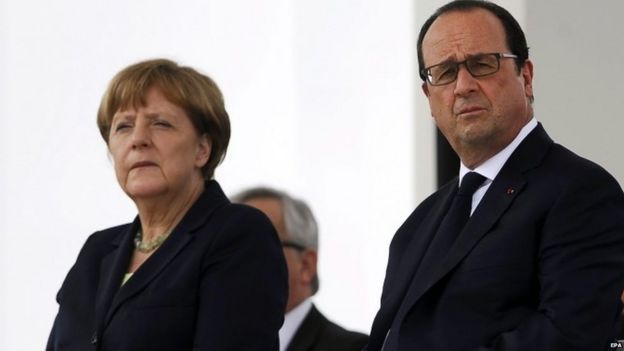 EPA
EPA
All EU leaders want the UK to stay in the bloc and a Leave vote will be met with dismay and anger across the Channel. EU leaders will probably convene an emergency summit, probably as early as the weekend.
And given Mr Juncker - the president of the European Commission - has suggested that "splitters will not be welcomed back with open arms", the atmosphere could become quite toxic quite quickly.
Europe's leaders, concerned about the rise of populist anti-EU parties in their own countries, will want a joint declaration of a determination to continue - and there will be demands for the UK to set out where it stands on key issues such as free movement, to reassure the 2.9 million EU citizens living in the UK that they will not be deported.
David Cameron's future
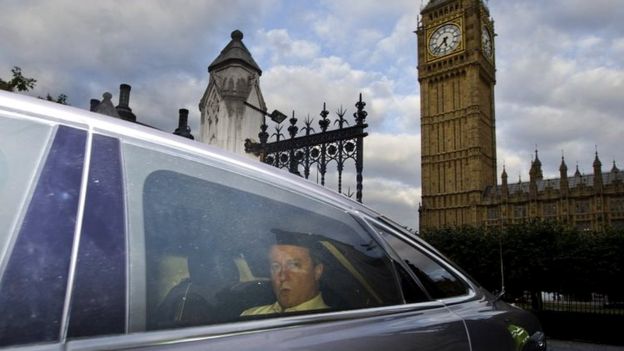 GETTY IMAGES
GETTY IMAGES
The prime minister has insisted he will carry on whatever the result, and on Thursday night 84 Conservative MPs who campaigned for Brexit urged him to remain as prime minister, but there are plenty of commentators and some Tory MPs who believe a Leave vote will put him in an untenable position.
Mr Cameron has already said that he will stand down before the next election due in 2020. If he decided to stay on it would take 50 MPs to write to the party's 1922 committee to trigger a vote of confidence in his leadership. Iain Duncan Smith, one of Mr Cameron's predecessors, was brought down in this way.
Only a small handful of MPs have so far said they are prepared to do this but given the wounds that the campaign has opened up, this cannot be ruled out. This, as with Mr Cameron deciding to resign, raises the prospect of a Conservative leadership contest, which would take several months and could add a further layer of uncertainty to the EU exit negotiations.
Pushing the exit button
Mr Cameron said in the event of a leave vote, he would activate Article 50 of the 2009 Lisbon Treaty without undue delay - setting in motion the process of withdrawing from the European Union. George Osborne has suggested this could happen within two weeks of a leave vote.
Once Article 50 is triggered, there is no way back into the EU unless by unanimous consent from all other member states.
But quitting the EU is not an automatic process - it has to be negotiated with the remaining members. These negotiations are meant to be completed within two years but the European Parliament has a veto over any new agreement formalising the relationship between the UK and the EU.
Leave campaigners Boris Johnson and Michael Gove have said there is no need to trigger Article 50 immediately. Only after extensive informal talks with other EU members and the European Commission will it become clear whether and how to trigger Article 50, Vote Leave has said.
The idea would be to allow other EU leaders the time to realise they need a "friendly" trade deal with the UK to continue exporting their consumer goods into the British market without tariffs.
Also Britain could, technically, ignore all of this, the Vote Leave campaign says, and simply write the EU out of its laws, although that wouldn't make future negotiations any easier.
As only one part of one country has ever left the European Community - Greenland more than 30 years ago (read Carolyn Quinn's feature on how they left) - we will be in uncharted territory here.
Exit negotiations begin
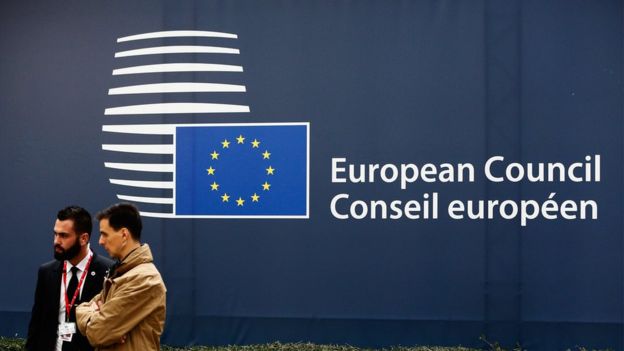 GETTY IMAGES
GETTY IMAGES
So, depending on when the prime minister triggers Article 50, perhaps at some time in late summer, or early autumn 2016, negotiations will begin in Brussels on the terms of its exit and the nature of the UK's subsequent relationship with the EU.
This would involve not only rescinding the European Communities Act, which gives primacy to EU law in the UK, but also sifting through an estimated 80,000 pages of EU agreements, which have been enacted over the past five decades, to decide which will be repealed, amended or retained - a process which Parliament will want to oversee.
After two years, the UK would no longer be bound by existing EU Treaties unless both it and the other 27 states agree unanimously to extend the process of negotiations.
Parliament will not stay silent
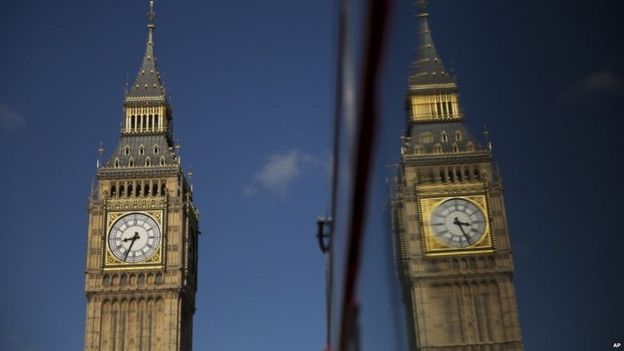 AP
AP
The majority of the UK's 650 MPs are in favour of Britain staying in the EU and while they will have to respect the will of the British people, they will not be silent bystanders.
There are already moves among the 450 or so MPs who want to stay in the EU, across the Labour, Conservative, SNP, Plaid Cymru and Green parties, to keep the UK in the single market in any exit negotiations.
This would mean Britain would have to keep its borders open to EU workers and continue paying into EU coffers.
They say it would be legitimate for MPs to do this because the Leave campaign has refused to spell out what trading relationship it wants the UK to have with the EU in the future - and it would demonstrate the sovereignty of Parliament the Leavers were so keen to restore.
Vote Leave is calling for immediate legislation to pave the way for Britain's formal exit by the next election due in 2020, the centrepiece of which would be repeal of the European Communities Act 1972, the brief piece of legislation that brought the country into the European Economic Community, as it was then known.
Who would lead Britain's negotiations?
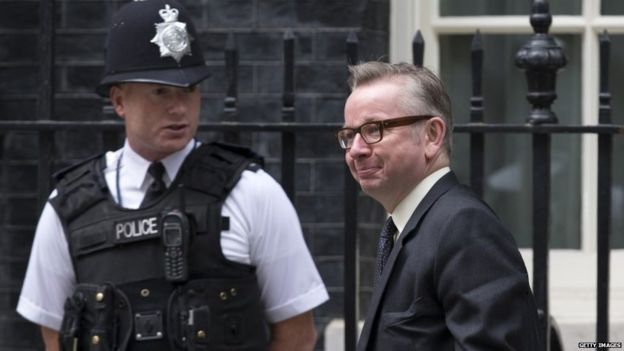 GETTY IMAGES
GETTY IMAGES
Then there is the question of who will do the negotiating for Britain. The most senior members of the government - David Cameron, Chancellor George Osborne, Foreign Secretary Philip Hammond and Home Secretary Theresa May - are all Remain supporters.
During the campaign, the Leave side said that it would be happy for the prime minister and senior civil servants - including cabinet secretary Sir Jeremy Heywood - to stay put to lead the negotiations although they would expect senior Leave figures to play a very prominent role. They have also called for figures from other parties, business, law and civil society to be drafted in to the negotiating team.
Even if Mr Cameron stays, expect a major shake-up of the cabinet with the likes of Michael Gove and Boris Johnson getting promotions. Mr Gove has been tipped as a potential deputy prime minister and lead cabinet negotiator and the former mayor could also expect a plum job.
Summer 2018 - exit looms
As the Article 50 two-year deadline approaches after the vote to leave, the prime minister of the day will be under pressure to sort out the terms of Britain's exit and a new trade deal with the EU before the country ceases to be a member.
It is possible, say Remain campaigners, that Britain's membership could cease and the UK revert to trading with the EU under World Trade Organization rules, which would involve exporters being hit by import taxes, or tariffs.
The deal would have to be agreed by a qualified majority on the council of ministers and be ratified by the member states. It would also have to be agreed by the European Parliament and MPs at Westminster.
Under this scenario British ministers would return to Brussels, at some point, to negotiate a more favourable trade deal, which Remain campaigners have warned could take years, maybe even decades, to fully complete.
The Leave campaign insists that a favourable trade deal could be done fairly rapidly because it would not be in the interests of France and Germany to lose access to the British market for its consumer goods.
They also reject the two-year timetable for exit, saying the government should aim to complete negotiations on a new EU-UK trade deal by 2020.
The UK's future up for grabs?
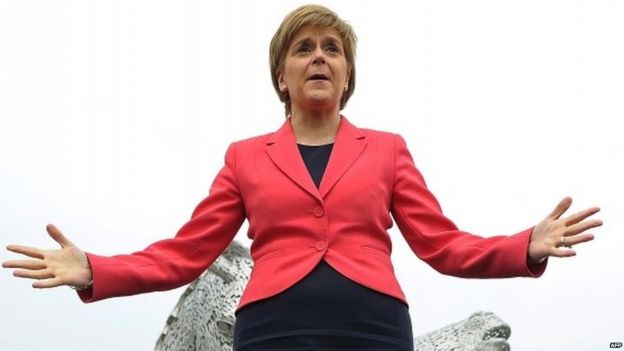 AFP
AFP
The SNP warned during the campaign that if - as has happened - the UK overall votes to leave the EU but Scots vote to remain, Scotland would be taken out of the EU "against its will" and this could be the trigger for another independence vote.
While SNP leader Nicola Sturgeon's failure to win a majority in last month's Holyrood elections means this will be harder to achieve, there are concerns in Westminster that a Leave vote could undermine the future of the Union.


No comments:
Post a Comment